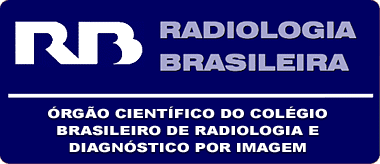Abstract
Objective:
To determinate the accuracy of computed tomography (CT) imaging assessed by deep neural networks for predicting the need for mechanical ventilation (MV) in patients hospitalized with severe acute respiratory syndrome due to coronavirus disease 2019 (COVID-19).
Materials and Methods:
This was a retrospective cohort study carried out at two hospitals in Brazil. We included CT scans from patients who were hospitalized due to severe acute respiratory syndrome and had COVID-19 confirmed by reverse transcriptionpolymerase chain reaction (RT-PCR). The training set consisted of chest CT examinations from 823 patients with COVID-19, of whom 93 required MV during hospitalization. We developed an artificial intelligence (AI) model based on convolutional neural networks. The performance of the AI model was evaluated by calculating its accuracy, sensitivity, specificity, and area under the receiver operating characteristic (ROC) curve.
Results:
For predicting the need for MV, the AI model had a sensitivity of 0.417 and a specificity of 0.860. The corresponding area under the ROC curve for the test set was 0.68.
Conclusion:
The high specificity of our AI model makes it able to reliably predict which patients will and will not need invasive ventilation. That makes this approach ideal for identifying high-risk patients and predicting the minimum number of ventilators and critical care beds that will be required.
Keywords:
COVID-19; Tomography; X-ray computed; Artificial intelligence.

 Thumbnail
Thumbnail
 Thumbnail
Thumbnail
 Thumbnail
Thumbnail


